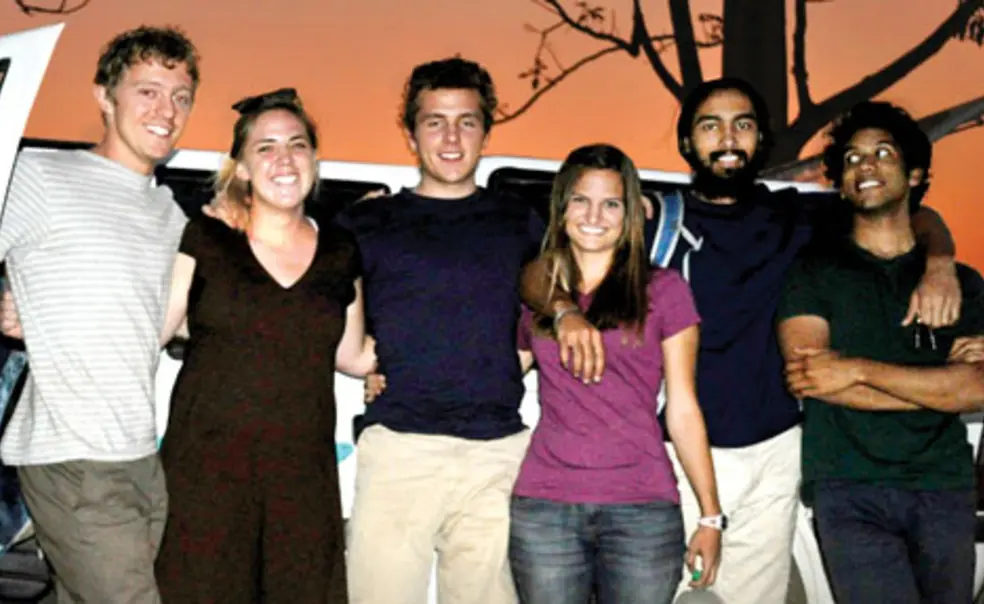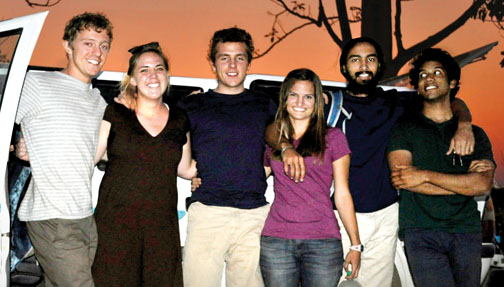Alumni combat children's health issues in Zimbabwe
In the rural district of Mutoko in Zimbabwe, where most people subsist on farming, don’t have electricity in their homes, and get their water from rivers and streams, children are hungry and schoolhouse toilets often are filled with blood. Also in Mutoko, five members of the Class of 2010 are working to give local children a better shot at a healthy future.
The young alumni make up Upenyu, a nonprofit organization founded by Yaagnik Kosuri ’10 and Patrick van Nieuwenhuizen ’10 to address neglected health issues in developing nations. After almost a year of planning, the group arrived in Zimbabwe in September to carry out the organization’s inaugural mission, an assault on two conditions widespread among the area’s children: chronic malnutrition and the waterborne parasitic infection (whose symptoms include bleeding) known locally as “snail fever” and medically as schistosomiasis.
To fight the severe malnutrition that affects about 1,500 children in Mutoko — about 3 percent — Upenyu will train health-care workers from Nyadire United Methodist Hospital, where Upenyu is based, and elsewhere to administer an edible, vitamin-fortified peanut paste to those in need. Upenyu also will identify satellite clinics that will become outposts, select managers to oversee operations without Upenyu’s long-term supervision, and fund these activities.
To stem the spread of schistosomiasis, which affects an estimated 65 percent of school-age children in Mutoko, Upenyu is helping to organize the distribution of medicine to approximately 30,000 people living around Nyadire United Methodist Hospital. Upenyu is covering the costs of the program — about $40,000 the first year — as well as collaborating with the National Institute for Health Research in Zimbabwe to monitor its effects by tracking symptoms in 500 treated children. The infection, while rarely deadly on its own, can lead to fatigue, organ damage, internal bleeding, and a host of other symptoms, and can affect cognitive development. It can be treated quickly and with minimal side effects with a drug, praziquantel, that Kosuri says costs about 20 cents per dose.
With a budget of $75,000 this fiscal year, Upenyu is funded by private donations.
It’s against all odds that the group is in Zimbabwe at all. In the fall of 2009, then-Princeton seniors and physics majors Kosuri and van Nieuwenhuizen agreed that they wanted to do some sort of health-related development work after graduation. The questions were, how and where?
“Organizations usually only have use for recent grads like us in a grant-writing capacity,” van Nieuwenhuizen says. “At this stage in life, it’s not so easy to get a position on the ground in Africa.”
They eventually zeroed in on Zimbabwe, despite a mentor’s warning that political volatility there often stymied aid efforts. Kosuri and van Nieuwenhuizen began sending e-mails to anyone they could find with a connection to health work in Zimbabwe. While few drew a response, says Kosuri, a reply came from Nyadire United Methodist Hospital asking, essentially, “When can you get here?” The team grew to include Laura Kergosien ’10, Karambir Khangoora ’10, and Jarlath Byrne Rodgers ’10. What they lacked in global health experience, they hoped to make up in energy and determination.













No responses yet